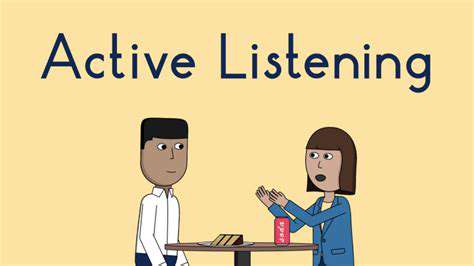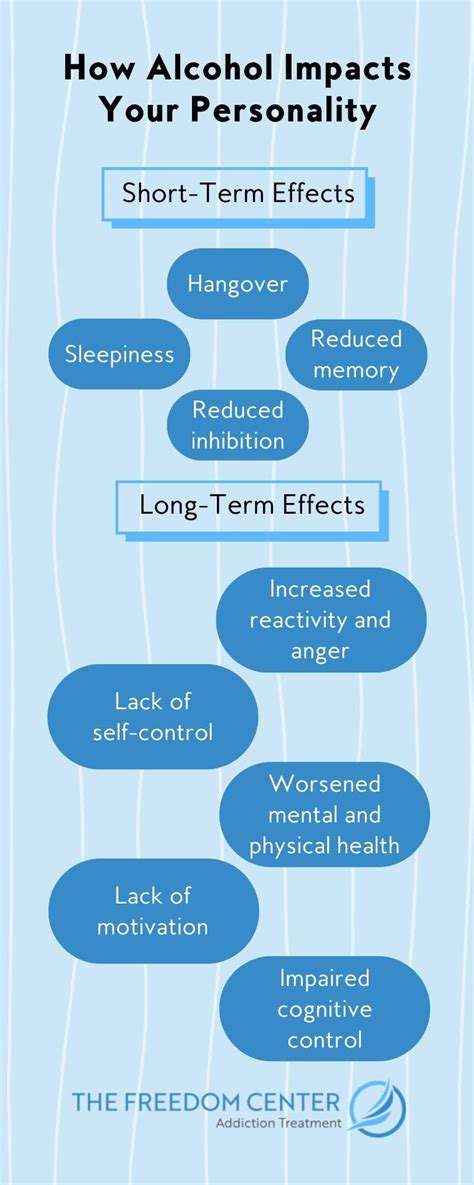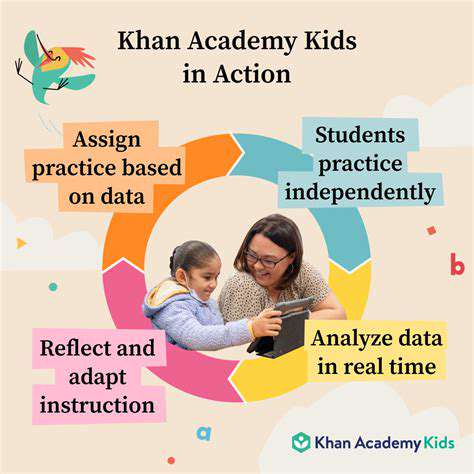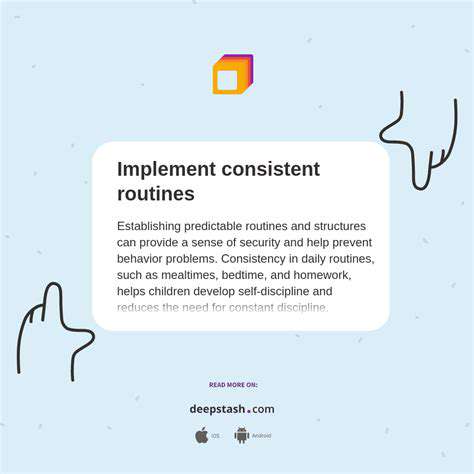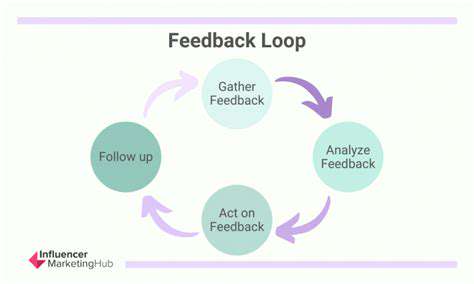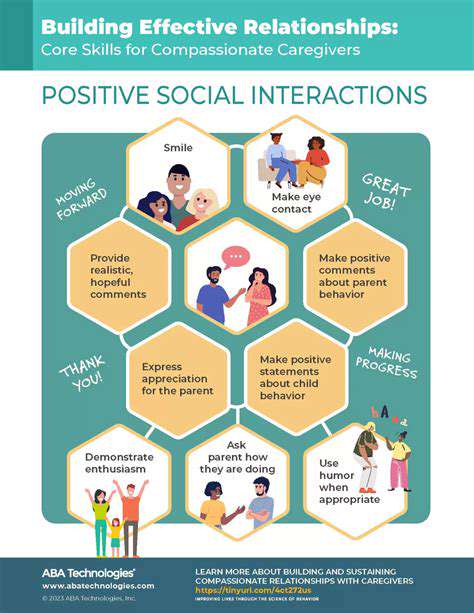Leading by Example: How Parents Shape Behavior
Children naturally absorb behaviors they observe daily, creating an invisible curriculum that shapes their moral framework. Parents who embody honesty and empathy don't just teach values - they create living lessons that children instinctively emulate. This goes beyond surface-level imitation; children internalize the reasoning behind actions, learning that integrity means aligning words with deeds. When parents openly acknowledge mistakes and demonstrate genuine efforts to improve, they teach children that growth matters more than perfection.
Family interactions become a child's first laboratory for social navigation. Through countless ordinary moments - watching parents resolve disagreements calmly or show kindness to strangers - children develop their ethical GPS. These repeated experiences form neural pathways that influence decision-making long before children can articulate moral principles. The security of predictable, values-driven parenting allows children to explore right and wrong within safe boundaries.
Cultivating Character Traits Through Consistent Action
Moral development thrives in the soil of daily practice, not abstract lectures. Parents who consistently demonstrate fairness in household decisions or patience during stressful moments create what psychologists call moral atmosphere. This environmental conditioning proves more powerful than any sermon about good behavior. Children recognize authentic virtue when they see parents helping neighbors without expectation of reward or maintaining composure during traffic jams.
The most effective moral education happens in unscripted moments. A parent who pauses work to listen fully to a child's concern models respect more powerfully than any scheduled values lesson. These micro-interactions accumulate into what becomes a child's moral operating system. When children witness parents donating time to community causes or speaking up against injustice, they learn that principles require active expression.
This approach creates generational ripple effects. Children raised with embodied values tend to become adults who elevate their workplaces and communities. The true measure of parenting success appears decades later, when former children make ethical choices without parental supervision. By living their values transparently, parents give children the ultimate gift - an internal guidance system that persists throughout life's complex journeys.
Cultivating Emotional Intelligence Through Demonstrated Empathy

Understanding Emotional Awareness
Emotional literacy begins with self-awareness - the ability to name feelings as they arise. Parents who regularly verbalize their own emotions (I feel frustrated because...) give children a vocabulary for their inner world. This modeling teaches that all emotions have value as information, not something to suppress. Children learn to recognize physical cues - a clenched jaw signaling anger or butterflies indicating nervousness - as emotional weather reports.
Empathic accuracy develops through practice. When parents reflect a child's probable feelings (That disappointment tastes sour, doesn't it?), they strengthen neural connections for emotional processing. This co-regulation creates what researchers call emotional scaffolding - temporary support until children can self-regulate. Over time, children begin recognizing subtle emotional signals in others - a teacher's tired eyes or a friend's forced smile.
Managing Emotions Effectively
Emotional regulation resembles muscle development - it strengthens through repeated use. Parents who demonstrate healthy coping mechanisms (taking deep breaths during stress or going for a walk when upset) provide working blueprints. Children notice when adults pause before reacting or use humor to diffuse tension. These observable strategies become part of a child's emotional toolkit.
The most transformative lesson isn't avoiding big feelings, but navigating them. When parents acknowledge, I need a minute to calm down before we talk, they model crucial self-awareness. This demonstrates that emotional waves can be surfed rather than feared. Children learn that uncomfortable feelings naturally dissipate when met with mindful attention rather than resistance.
Empathy and Social Skills
Genuine empathy develops through perspective-taking exercises. Parents who wonder aloud, How do you think your friend felt when that happened? cultivate cognitive empathy. This mental stretching builds the foundation for compassion - the drive to alleviate others' suffering. Family discussions analyzing book characters' motivations or historical figures' decisions sharpen this skill.
Social fluency emerges from thousands of micro-interactions. When parents demonstrate active listening - putting down phones, making eye contact, summarizing what they heard - they teach connection skills more valuable than any etiquette lesson. Children who regularly observe parents resolving conflicts with I statements and compromise internalize these patterns for their own relationships.
Promoting Responsibility and Self-Discipline Through Consistent Actions

Creating a Culture of Accountability
Responsibility grows from predictable structures where actions have natural consequences. Parents who establish clear routines (Sunday meal planning or weekly closet organization) demonstrate that maintenance prevents chaos. When children see adults following through on commitments - returning library books on time or completing household repairs promptly - they learn that reliability builds trust.
The most effective accountability systems mirror real-world cause and effect. Allowing a child to experience the natural consequence of forgotten homework (rather than delivering it to school) teaches more than any punishment. These measured doses of discomfort create what psychologists call productive struggle - the essential ingredient for developing responsibility.
Developing Executive Function Skills
Self-discipline blossoms in environments that balance autonomy with support. Parents who break large tasks into manageable steps (while resisting the urge to take over) foster problem-solving resilience. Visible planning tools - shared family calendars or recipe binders - make abstract organization concepts concrete. When children observe parents referencing lists or setting phone reminders, they absorb meta-cognitive strategies.
The transition from external to internal motivation marks a key developmental milestone. Parents who focus praise on effort (You concentrated hard on that math sheet) rather than innate ability cultivate growth mindsets. This subtle shift teaches children that discipline is a learnable skill, not a fixed trait. Over time, the satisfaction of completed responsibilities becomes its own reward.
Building Ethical Decision-Making
Moral courage develops through practice with low-stakes choices. Family discussions weighing options (returning incorrect change or admitting to accidental damage) build ethical muscle memory. When parents verbalize their decision-making process (I could take the easy way out, but...), children gain insight into principled thinking.
The most powerful lessons often come from transparent mistakes. Parents who openly discuss their own lapses in judgment (I lost my temper earlier and shouldn't have...) demonstrate that integrity means course-correcting, not perfection. This models the lifelong practice of aligning actions with values, even when inconvenient. Children learn that character isn't about never failing, but about taking responsibility when you do.


